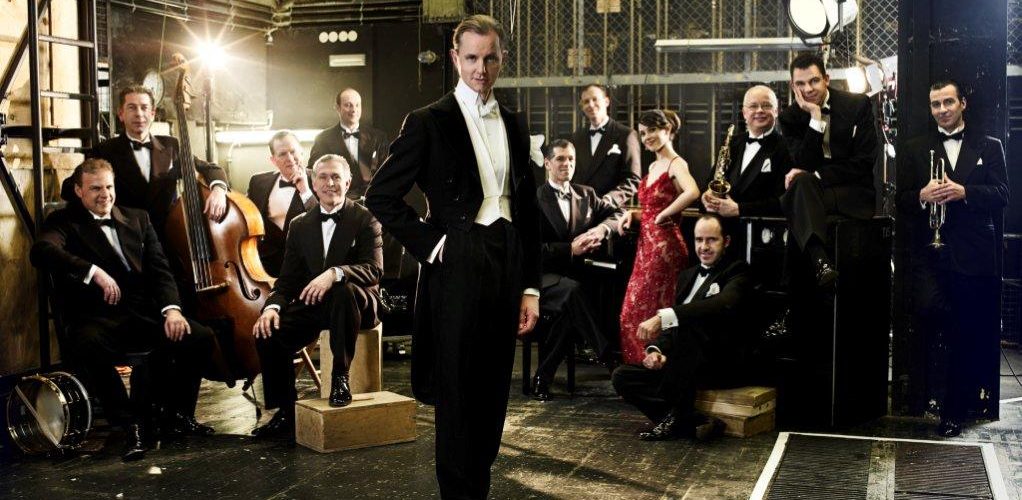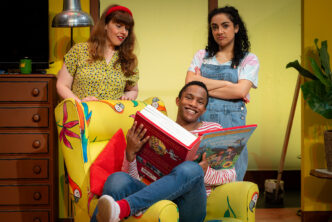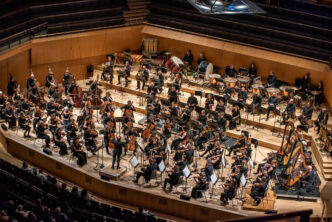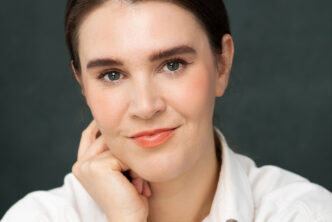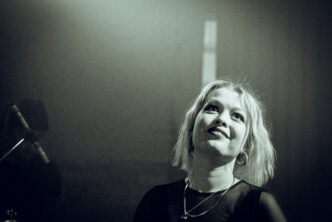Max Raabe debonair front man with Germany’s critically acclaimed Palast Orchester who arrive in Manchester on their first ever UK tour this Spring. He talks to Quays Life about musically transporting audiences back a century to the Roaring Twenties.
How would you describe Max Raabe and the Palast Orchester?
Max: “We’re a 13-piece orchestra playing the music of the 1920s and 1930s. We have four saxophones, two trumpets, one trombone, rhythm section with sousaphone, double bass, drums, guitar, banjo, and a violin player – she’s the only lady in the orchestra. This is by chance.
“Our first violin was played by the girlfriend of one of our saxophone players. And when he left, we asked a student of ours to play for a concert and he said: ‘For one concert I will do that, but I have no time to come with you to play concerts and stay in your band’. But then we realised how wonderful it is to have a woman in the orchestra. Our current violinist Cecilia Crisafulli has been with us for 13 years”.
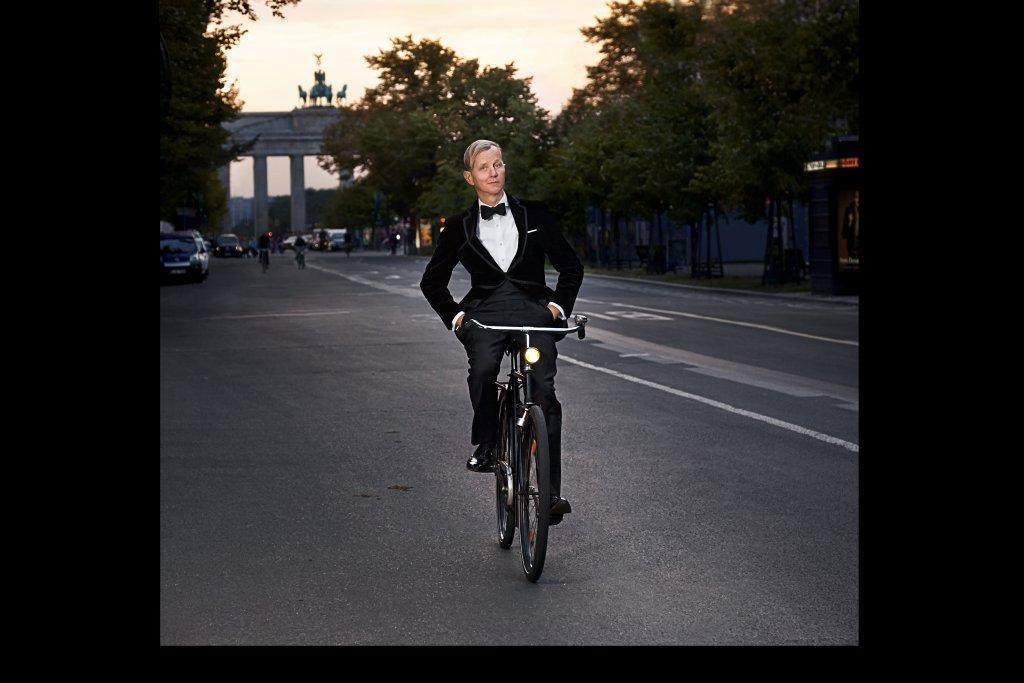
How many players have been with the orchestra since it was founded in the mid-1980s?
Max: “There are still eight people from that time. But since the mid-90s we’ve had the same line-up. We’re a student band – an old one!”
This is being described as your first UK tour. The Palast Orchester has been together more than 30 years so why has it taken so long?
Max: “We have played some concerts, at the Cadogan Hall in London and Shepherd’s Bush Empire, and invitations to festivals like Twinwood (in 2012) and the Secret Garden Party. We had wonderful concerts and it was always very successful. In Spring, I have my second solo concert at Wigmore Hall in London, which is a wonderful concert hall. It’s not so easy to go to your island for artists from Europe. I think you have incredible artists and musicians – maybe that’s the reason why”.
What was it that first interested you in this specific style of music?
Max: “The music was always there when I was a child. On each Sunday there were black and white films on TV. Not only German and Austrian films from the 1920s and 1930s, but also from the United States with Fred Astaire. There was always a scene where somebody was singing, and a band was playing in a big hotel.
“In my father’s record collection there was an instrumental song called Crazy About Hilde. It was funny and fast, but there was a melancholy sub-note in that song by the saxophones and the vibrato of the trumpet – it was like listening through a pipe into another room, another era. So, I went to flea markets in the next big town, Münster, and bought some of these 78 records, not only German but also sometimes English songs”.
You started performing the songs as a teenager. What was the reaction from friends and family?
Max: “My parents were shocked and friends, they loved it. We had a very active church and every family and friend went there. Once a year there was a big party and they asked us to do some sketches or play some music – and that was the first time I put on my father’s top hat and sang these songs. It was wonderful, they loved it and it was fun for me. Possibly just a joke, I never thought I’d be a musician one day”.
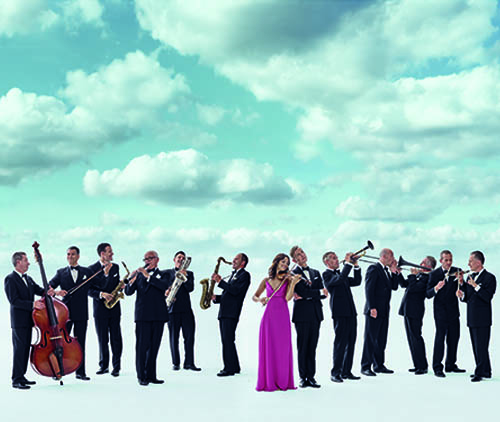
You went on to study classical singing at college in Berlin, where you and your friends formed the orchestra.
Max: “I financed my study with that music but told nobody about it. One of my teachers came to me and said: ‘Another professor told me that you sing songs from the 20s and 30s. Take care, it may ruin your voice and can be dangerous or difficult. I don’t like this idea that you sing other material’.
“He was then at a concert we did and said: ‘You do it well, you don’t stress your voice, you have a wonderful technique and I see you don’t mix it up. You have this classical way to sing and you have this Twenties light crooning way to sing. Don’t do it too much, but it’s OK with me’. So, I didn’t have to be a waiter or a taxi driver during my studies, I could start earning money with music”.
When did you know the Palast Orchester was going to be more than a hobby?
Max: “After a year we were invited to perform at a ball, playing in the foyer. People stood in front of our stage and asked us to play again and again. It was then we realised we were on the right track, it was absolutely amazing. Then we did our first concert, got some TV jobs and we said let’s go ahead – as long as people want to hear it and as long as we want to do it. And we’re still doing it!”
Where do you find all the original arrangements from the 1920s and 1930s?
Max: “The first we found in flea markets, then we found a big old publishing company in Berlin. There was a company who asked us to do a record and said: ‘We have so many records in our cellar and archives, let’s have a look and maybe you can find some’.
“A few years ago we had a tour through the States including a concert in Chicago, and a few weeks before somebody said: ‘Do you know there is a big library in Chicago with original stock arrangements from the Twenties and Thirties?’ We went and found around 30 arrangements and just had to pay the copy for them. It was like Christmas on one day, incredible”.
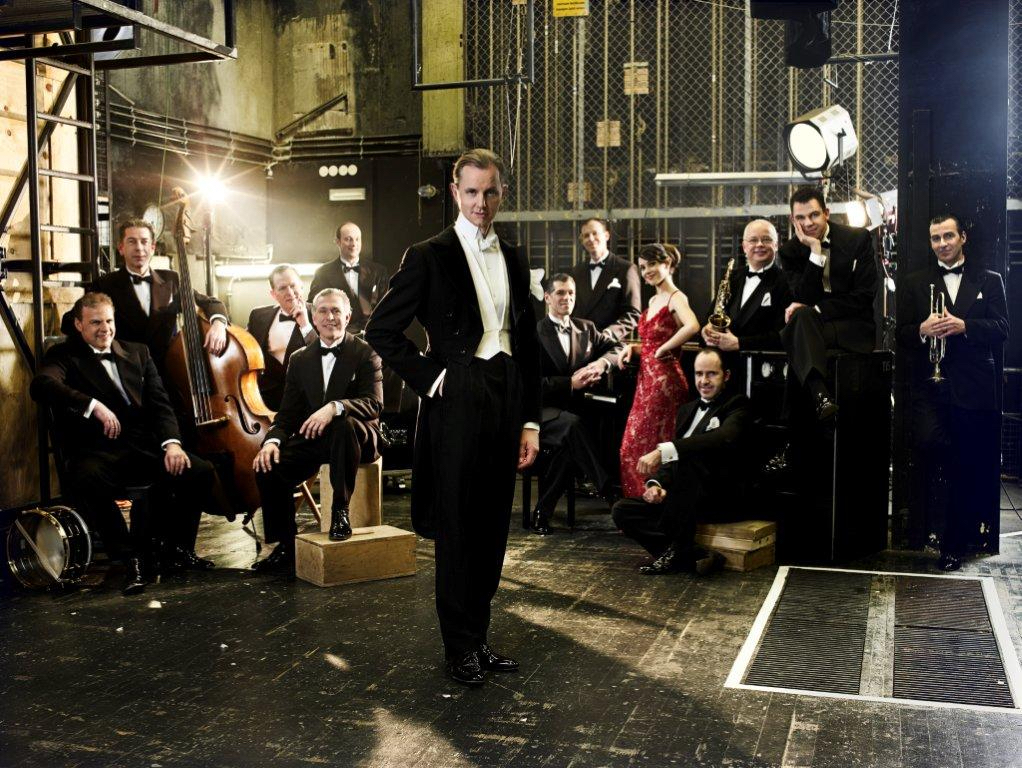
How do you decide what to perform for each concert? And what can UK audiences expect?
Max: “We have more than 600 songs in our repertoire. We mix it up with songs I compose and play songs of the countries we’re travelling through. When we have a tour through somewhere like Scandinavia we do one programme, when we go to Japan we sing some Japanese songs. Recently we had a concert in Milan and the programme had five Italian songs.
“One of the songs we’ll play in the United Kingdom is ‘I Won’t Dance’, a wonderful arrangement from 1935 which we found in Chicago. We have Noel Coward songs and some by Al Bowlly. We play in the way it was played in the early 1930s, the pre-swing era”.
How do you feel when you stand at the front of the orchestra singing these songs
Max: “It makes me feel lucky because I always discover new colours and variations. My aim is to entertain the audience and transport them out of reality. The music was written to take its audience away from their everyday problems. And it still works today”.
Max Raabe and Palast Orchester are touring the UK in March visiting the Bridgewater Hall, Manchester on 6 March 2020. See website for full tour details. See our competition for a chance to WIN TWO TICKETS to the show.

